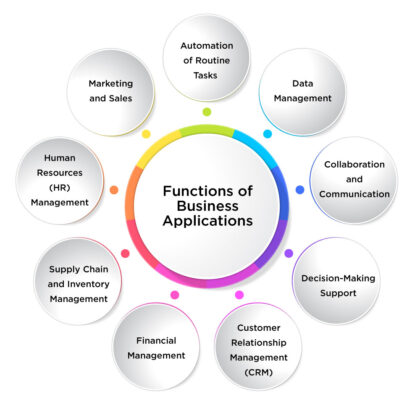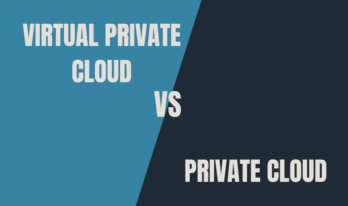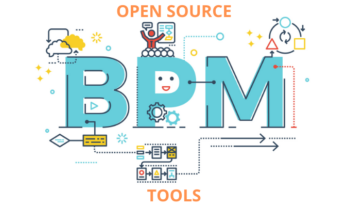In today's business sector, companies remarkably depend on technology to stay competitive and efficient. Business applications are software solutions that streamline operations, improve productivity, and help businesses make smarter decisions.
But what exactly are business applications? And why are they so vital for modern businesses?
Let’s learn in this blog post.
What Are Business Applications?
Software programs or tools that help firms to manage their various business processes and tasks called as business applications. These applications boost efficiency, minimize manual work, and boost the overall functioning of the business.
In simple words, business applications, also known as enterprise systems, are software that helps the firms in performing certain tasks which leads to effective working in a firm. Simple tools for scheduling and email management to sophisticated systems that assist in overseeing all aspects of corporate operations are examples of business apps. The demands of various companies and sectors may be catered for by customizing these apps.
Functions of Business Applications:
Let’s explore some of the key functions of business applications:
1. Automation of Routine Tasks:
Automating repetitive operations is a major goal of business software. Data input, scheduling, and inventory monitoring are examples of tasks that business software may do automatically in place of workers doing them by hand. As a result, employees have more time to devote to more strategic and innovative tasks. For example, accounting software can compute taxes and create invoices automatically.
2. Data Management:
Business apps facilitate the collection, management, and storage of vast volumes of data, facilitating its accessibility and analysis. Businesses may use real-time data to guide their decisions when data management is done correctly. For example, companies can store customer information and monitor client interactions with the help of CRM systems.
3. Collaboration and Communication:
Business apps facilitate communication, file sharing, and project collaboration by giving team members the means to do so. Tools like Google Workspace, Slack, and Microsoft Teams have become essential for companies that depend on cooperation and teamwork.
4. Decision-Making Support:
Business applications help in decision-making. They offer reports and insights derived from real-time data. Firms can use business intelligence (BI) technologies. These insights may be utilized to predict future performance, detect patterns, and identify possible problems.
5. Customer Relationship Management (CRM):
Any successful firm is built on its relationship with its customers. CRM systems facilitate sales funnel management, communication personalization, and enterprise customer contact tracking. Businesses may improve income, foster client loyalty, and enhance customer happiness by implementing CRM software.
6. Financial Management:
Software for financial management assists companies in monitoring their cash flow, balance sheets, costs, and earnings. Companies may stay financially stable and adhere to tax laws by using these tools. Financial management software such as FreshBooks, Xero, and QuickBooks are well-known examples.
7. Supply Chain and Inventory Management:
It is important for companies that deal with tangible commodities to manage supply chains and inventories. Businesses may use business software to manage suppliers, keep track of inventories, and streamline the supply chain. By doing this, companies may save expenses and avoid stockouts.
8. Human Resources (HR) Management:
The HR management software is there to make employee-related operations, including hiring, payroll, benefits administration, and performance management, more efficient. Businesses may guarantee labor law compliance, lower mistakes, and increase employee happiness by automating certain HR procedures.
9. Marketing and Sales:
Tools for marketing automation assist companies in planning, implementing, and monitoring marketing campaigns. However, sales software aids in tracking deals, managing sales leads, and predicting income. These technologies include - Salesforce, Mailchimp, and HubSpot.
Examples of Enterprise Systems:
- Salesforce: It is a CRM tool. It aids firms to handle customer relationships and automate sales processes.
- QuickBooks: It is an accounting software. It aids small firms in tracking expenses, generating invoices, and managing finances.
- Slack: It is a communication and collaboration platform. It permits teams to message, share files, and work together in real time.
- Shopify: It is an e-commerce platform. It aids firms to create and manage online stores.
Why Are Business Applications Important?
- Increased Efficiency: Business applications save time and reduce human error by automating tasks and streamlining processes.
- Better Decision-Making: Business applications provide real-time data and analytics. So, it helps leaders make informed decisions.
- Cost Savings: By improving productivity and efficiency, business applications help businesses save money in the long run.
- Improved Collaboration: Tools for communication and project management enhance teamwork and collaboration among employees.
Final Thoughts!
Firms use business apps as vital tools to increase productivity, simplify processes, and make better choices. Almost every process, from accounting to customer relationship management, has a business application. Businesses may increase growth, maintain competitiveness, and provide consumers with better value by using the appropriate digital solutions.
For more informative blogs, visit us at WisdomPlexus.
Recommended For You:
Data Monetization – How to Gain Profits from Your Business Data!





